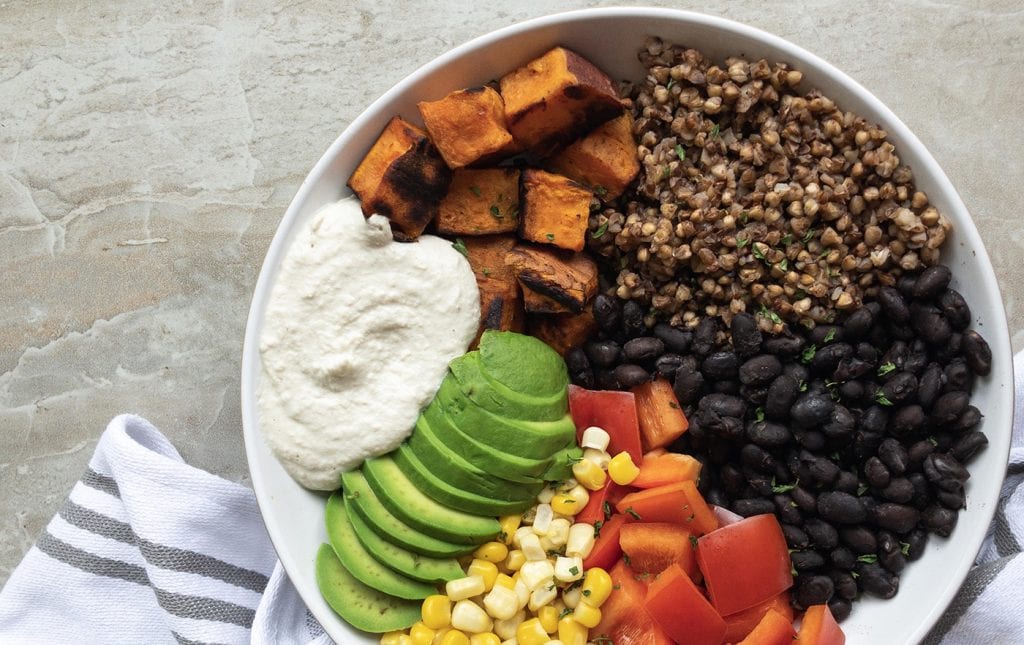In a world of fast-paced lifestyles and high-performance expectations, athletes are constantly searching for the next edge to propel them to greatness. Enter plant-based diets, a rising trend in the athletic world that promises to deliver optimal nourishment, improve recovery, and enhance performance. As more and more athletes turn to plants to fuel their bodies, the question arises: can a diet rich in fruits, vegetables, grains, and legumes truly meet the demands of elite physical performance? Let’s dive into the world of plant-based diets for athletes and explore the science behind this growing movement.

Optimizing Performance with Plant-Based Nutrition
Plant-based diets have been gaining popularity among athletes for their ability to optimize performance and enhance recovery. By focusing on whole, nutrient-dense foods derived from plants, athletes can fuel their bodies efficiently and sustainably.
One of the key benefits of a plant-based diet for athletes is its high antioxidant content. Antioxidants help combat oxidative stress, reduce inflammation, and aid in muscle recovery after intense workouts. Fruits, vegetables, nuts, seeds, and whole grains are all rich sources of antioxidants, making them essential components of a plant-based athlete’s diet.
Furthermore, plant-based diets can provide ample amounts of carbohydrates, which are the body’s primary source of energy during physical activity. Foods like quinoa, sweet potatoes, and bananas are great sources of complex carbohydrates that can fuel endurance and support optimal performance.
- Antioxidants in plant-based foods help combat oxidative stress
- Carbohydrates from plant-based sources fuel endurance and performance
- Protein from plant-based sources can support muscle recovery and growth
Key Nutrients for Athletes on a Plant-Based Diet
When following a plant-based diet as an athlete, it’s important to ensure you’re getting all the necessary nutrients to support your performance and recovery. While plant-based diets can provide plenty of essential vitamins and minerals, there are a few key nutrients that athletes on a plant-based diet need to pay special attention to:
- Protein: Plant-based sources of protein include beans, lentils, tofu, tempeh, quinoa, and nuts. Make sure to include a variety of these protein-rich foods in your meals to meet your protein needs for muscle repair and growth.
- Iron: Iron is essential for oxygen transport in the blood, and athletes may have higher iron needs due to increased red blood cell turnover. Good plant-based sources of iron include dark leafy greens, lentils, and fortified cereals.
- Omega-3 fatty acids: While fish is a common source of omega-3 fatty acids, athletes on a plant-based diet can get their omega-3s from flaxseeds, chia seeds, hemp seeds, and walnuts. These healthy fats are important for reducing inflammation and supporting cardiovascular health.
Fueling Your Workouts with Plant-Based Foods
When it comes to optimizing your workouts, fueling your body with the right nutrients is essential. Plant-based diets have been gaining popularity among athletes for their ability to provide the necessary energy, protein, and vitamins needed for peak performance.
By incorporating a variety of plant-based foods into your diet, you can ensure that your body is receiving all the nutrients it needs to perform at its best. From leafy greens and fruits to nuts and legumes, there are plenty of options to choose from to fuel your workouts effectively.
Not only are plant-based foods rich in essential nutrients, but they also offer numerous health benefits, such as reducing inflammation, improving digestion, and boosting overall energy levels. Athletes who follow a plant-based diet often report faster recovery times and increased endurance, making it a popular choice for those looking to take their performance to the next level.
Balancing Protein Sources for Muscle Recovery
When it comes to optimizing muscle recovery, athletes following a plant-based diet need to pay extra attention to ensuring they are getting enough high-quality protein sources. While many people believe that animal products are the only way to build muscle, plant-based athletes can also achieve optimal muscle recovery by incorporating a variety of plant-based protein sources into their diets.
One key to on a plant-based diet is to incorporate a variety of different plant proteins to ensure you are getting all of the essential amino acids your body needs. Some of the best plant-based protein sources include:
- Quinoa: A complete protein that is also high in fiber and other nutrients.
- Lentils: Packed with protein, fiber, and iron, making them a great muscle-recovery food.
- Nuts and seeds: Almonds, chia seeds, and hemp seeds are all excellent sources of plant-based protein.
- Legumes: Beans, chickpeas, and peas are all rich in protein and can be easily incorporated into a variety of dishes.
| Protein Source | Protein Content (per 100g) |
|---|---|
| Quinoa | 14g |
| Lentils | 9g |
| Chia Seeds | 16.5g |
| Chickpeas | 7.3g |
By incorporating a variety of these plant-based protein sources into your diet, you can ensure that you are getting all of the nutrients your body needs to support muscle recovery and achieve your athletic goals.
In conclusion, plant-based diets can provide a powerhouse of nutrients and benefits for athletes, enhancing performance and recovery while supporting overall health and well-being. By incorporating more plant-based foods into your diet, you can fuel your body with the natural energy it needs to conquer your athletic goals. So why not take a leap into the world of plant-based eating and see how it can take your athletic performance to the next level? Your body will thank you for it!

